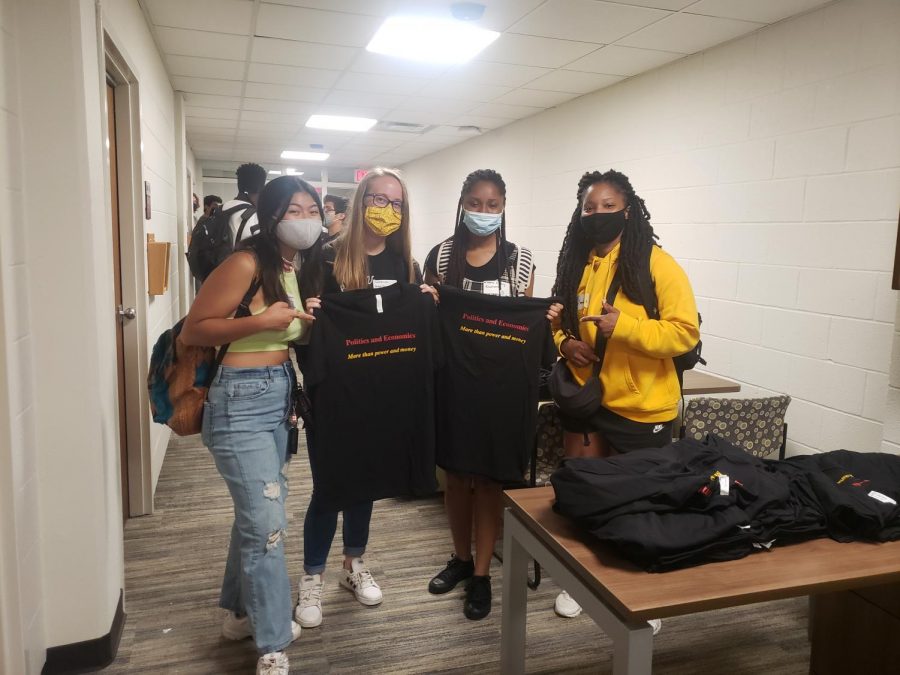Political science and economics departments unite as one
This summer, the political science and economics departments merged and moved into Heimenga Hall.
September 19, 2021
The former political science and economics departments officially merged on July 1, 2021, becoming the department of politics and economics. The new department relocated to Hiemenga Hall, joining the departments of philosophy, religion, history, sociology and world languages to form the new School of Humanities, Arts and Social Sciences at the center of campus.
The merger was an outcome of Calvin’s University Structure Masterplan, which calls for greater collaborative efforts across academic departments.
According to Professor Joel Westra, co-chair of the politics and economics department, the decision suitably coincided with the timing of the politics department’s curricular revisions to incorporate method courses and the construction of the business school in DeVos Communication Center.
“We’re now co-located with other social sciences, with a merged department with complementary programs and we’re exploring what synergies might emerge from it,” Westra said.
Professor Becky Haney, co-chair of the joined department, echoed Westra’s confidence about the administration’s bold move. According to Haney, the consolidation of the two departments was mutually beneficial, creating the opportunity for collaboration while maintaining the distinct role of each discipline.
“The merge has given us all a fresh perspective to look at each other’s programs … to be a little vulnerable … and share what we do and then be open to really good and fun and constructive criticism,” Haney said.
The PPE (politics, philosophy and economics) program, headed by Professor Micah Watson, is an example of resulting interdisciplinary collaborative efforts between the politics and economics departments. The program registered a growth from seven students last year to 27 this year. This figure included both new students that joined the program and other students within the department that switched over to the PPE major.
“Our numbers have actually been quite strong,” Watson said. “In the last few years, while Calvin has faced enormous challenges and we want to do our part, our little piece of that has actually increased.”
Most students affected by the political science and economics merger considered it a practical decision due to the obvious overlap between the two disciplines.
Junior Nehem-Brainerd David, an international relations and philosophy major, described the merger as a positive move that fortified the majors and the departments while giving students the room to explore the different disciplines. David said his only initial hesitancy concerned the administration’s motivations behind the merger.
“I think it’s easy to perceive that scientists are being given more importance … which might worry students, especially humanities students … but then seeing how much they’re pouring into the new space and all the facilities they are able to offer students … that assuages some fears.”
“It’s essentially what I’m doing anyway,” senior Ashley Cheeseboro said as a political science and economics major. She believed that regardless of the motivations behind the merger, the outcome was advantageous.
The politics and economics department hosted its kickoff party on Sept. 14, where it officially introduced students to the new location in Hiemenga Hall. The layout includes a study area in the department’s suite on the third floor, the Civitas Lab for research on the fourth floor and a computer lab for social science students on the second floor.



